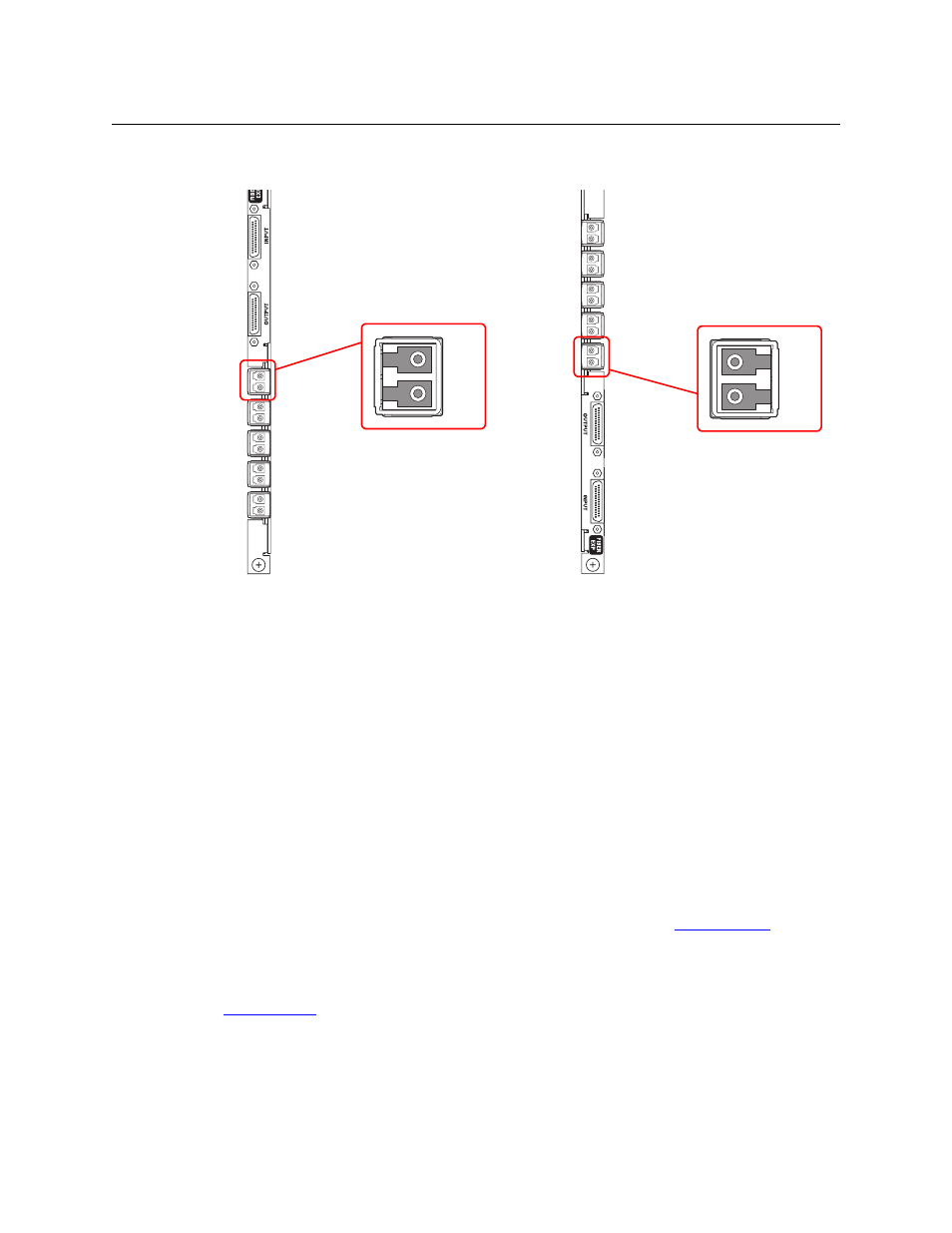I/o cards, Sfp modules in nv8280, nv8140, and nv8144 frames – Grass Valley NV8500 Series v.3.5 User Manual
Page 62

46
Inputs and Outputs
I/O Cards
The SFP modules in the upper bay face left and have the “B” port at the top whereas the SFP
modules in the lower bay face right and have the “B” port at the bottom. Figure 2-15 shows this:
Fig. 2-15: Expansion Output Backplanes
The wavelength of the unconnected port of the last SFP module on the backplane cannot be
used.
The CWDM multiplexer can receive signals from any of the (live) ports of the router. However, its
use with 9-port expansion output cards is slightly less efficient than with the 18-port output
cards.
SFP Modules in NV8280, NV8140, and NV8144 Frames
The SFP modules for these routers are oriented as shown in Figure 2-14 for the upper bays.
In addition, the ports of fiber-optic output backplanes are numbered as shown in Figure 2-14.
I/O Cards
Different types of input cards and output cards can be inter-mixed in a single frame. For each I/O
card installed, a corresponding backplane must also be installed. (See
All input cards and output cards have a circuit that reports status (to the router’s control card)
and drives the card’s functions. LEDs on the front of the card also indicate the card’s status. See
n+1
n+2
n+3
n+4
n+5
n+6
n+7
n+8
n+9
n.c.
In Upper Bay
n.c.
n+1
n+2
n+3
n+4
n+5
n+6
n+7
n+8
n+9
In Lower Bay
1291
1271
λ (nm)
Port
1331
1311
1371
1351
1411
1391
1451
1431 (not used)
1431 (not used)
1451
λ (nm)
1471
1491
1511
1531
1551
1571
1591
1611
Port
B
A
A
B